Because heart disease is such a common cause of death, claiming a life every 37 seconds, finding more effective treatments is a primary concern in the medical community. New research has led to the discovery that the omega-3 fatty acids in fish oil may serve as an effective supplemental treatment for reducing the risks of developing cardiovascular disease by lowering the levels of triglycerides, or fat cells, in the blood. As a result of this research, a new fish oil drug which works by keeping triglyceride levels in check was recently approved by the FDA as an adjunct treatment for heart disease. In approving the new fish oil drug, the FDA specified that it is especially effective in adults with elevated triglycerides, or levels reaching more than 150 milligrams per deciliter.
FDA Approves Fish Oil Drug to Help Reduce Heart Disease Risk
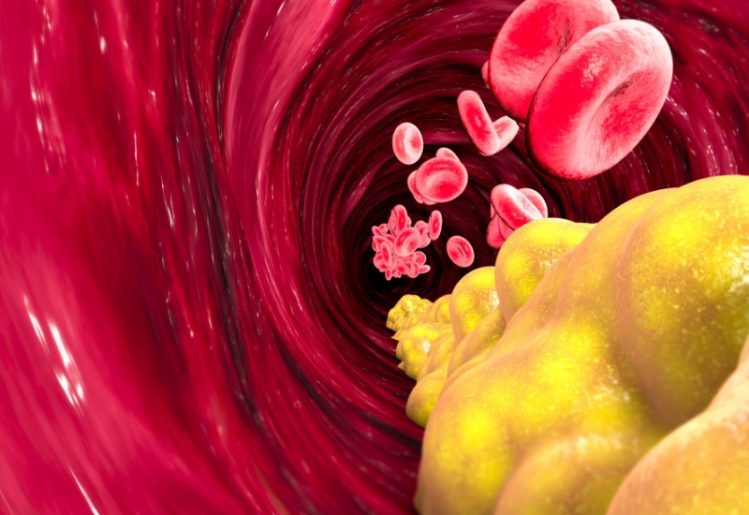 The new fish oil drug, called Vascepa, contains a potent omega-3 fatty acid called eicosapentaenoic acid (EPA). While this compound is naturally found in fish oil, the FDA advises that for maximum effectiveness it should only be prescribed to patients with exceptionally high triglyceride levels and that it should be used along with other treatments designed to lower the risk of a cardiovascular event. Additionally, it is cautioned that patients keep a close eye on their cholesterol levels while taking Vascepa.
The new fish oil drug, called Vascepa, contains a potent omega-3 fatty acid called eicosapentaenoic acid (EPA). While this compound is naturally found in fish oil, the FDA advises that for maximum effectiveness it should only be prescribed to patients with exceptionally high triglyceride levels and that it should be used along with other treatments designed to lower the risk of a cardiovascular event. Additionally, it is cautioned that patients keep a close eye on their cholesterol levels while taking Vascepa.
Although the exact mechanism by which the drug works to lower triglyceride levels is unknown, in-depth research has concluded that it is effective. When taken as a part of an overall treatment plan, the fish oil-based drug lowers the amount of triglycerides in the blood, which reduces the risk of fat cell build-up. As more fat cells populate the blood supply, the arteries stiffen and become narrower, inhibiting the flow of blood. As a result, the risk of a heart attack or stroke is increased. By keeping the triglycerides low, Vascepa reduces the risks that this chain of events will occur.
In a recent clinical trial, researchers selected a group of 8,179 adults, aged 45 or older. Each subject exhibited previous heart, cardiovascular or metabolic problems. The subjects chosen for the trial also had additional risks for cardiovascular disease. Those subjects given the drug were found to exhibit a lower risk of suffering from a cardiovascular event than those who did not take the drug. While cardiovascular problems were reduced by 33 percent for those who took the drug, it was also found that people with a history of atrial fibrillation were at a greater risk of suffering from those events. Also, it was noted that those who suffer from fish or shellfish allergies should take the drug only under the close supervision of their doctors.
The Health Benefits of Omega-3 Fatty Acids
The heart isn’t the only organ that benefits from a regular intake of omega-3 fatty acids. In fact,omega-3’s have such a strong effect on the brain and nervous system that they can be used to impact the symptoms of multiple sclerosis. In other studies, a low-fat diet that relies on oily fish has been shown to be effective in lowering the risks of developing colon cancer and prostate cancer.
Consuming more omega-3-rich foods can also reverse the onset of post-partum depression, according to a separate study. The researchers involved in that project recommend eating fish rich in omega-3 oils at least twice per week. Additionally, the proteins and minerals found in fish can be beneficial to our health.
 There are a number of cognitive and emotional health benefits that can come from an increased intake of omega-3 fatty acids. A study involving children found that consuming more fish per week improved behavioral problems associated with ADHD. In a separate research project, it was found that memory recall was improved in young adults, although the researchers could not verify that the omega-3 exposure would help prevent cognitive decline in later years. Regular consumption of omega-3-rich foods may also reduce the risks of developing Alzheimer’s disease, lower the frequency of epileptic seizures, prevent age-related vision loss and may reduce the risk of psychosis.
There are a number of cognitive and emotional health benefits that can come from an increased intake of omega-3 fatty acids. A study involving children found that consuming more fish per week improved behavioral problems associated with ADHD. In a separate research project, it was found that memory recall was improved in young adults, although the researchers could not verify that the omega-3 exposure would help prevent cognitive decline in later years. Regular consumption of omega-3-rich foods may also reduce the risks of developing Alzheimer’s disease, lower the frequency of epileptic seizures, prevent age-related vision loss and may reduce the risk of psychosis.
What Are the Best Sources of Omega-3 Fatty Acids?
If you’re not a big fish eater, getting omega-3 fatty acids through vitamin supplements is a convenient alternative. While taking a supplement in addition to eating a healthy supply of fish didn’t seem to increase the benefits to cardiovascular health, cancer risks and other medical conditions, choosing one or the other did provide those benefits. In either case, adding more omega-3 to your diet won’t completely eliminate these health risks, but it will reduce them.
Other than taking a fish oil supplement or eating more oily fish, there are other natural ways to get more omega-3’s. The compound is also found in flax, hempseed, perilla oil, chia seeds and spirulina. Although dark, leafy green vegetables, including fresh basil, also have omega-3 fatty acids, the content is lower than it is in fresh wild-caught oily fish. To obtain the highest concentrations of omega-3 fatty acids, eat more sardines, herring, anchovies, trout, mackerel and salmon. To gain the maximum health benefits, two to three servings per week are recommended.
While eating more seafood is beneficial, the type of seafood you eat must be taken into account. Larger fish, such as king mackerel, shark, tilefish or swordfish, will have larger concentrations of mercury, so children and pregnant women should be especially wary of eating them. To obtain a good supply of healthy fish oil without increasing mercury exposure, stick with canned light tuna, catfish, pollock and salmon.
 In conducting their research, the team studied surveys from subjects in the United States and China, ultimately noting that those who ate more chili peppers exhibited reduced early mortality rates. Taking their research a step further in a separate study, the team then observed the ways in which capsaicin affected lipids in the blood in an attempt to uncover exactly how the compound improved mortality.
In conducting their research, the team studied surveys from subjects in the United States and China, ultimately noting that those who ate more chili peppers exhibited reduced early mortality rates. Taking their research a step further in a separate study, the team then observed the ways in which capsaicin affected lipids in the blood in an attempt to uncover exactly how the compound improved mortality. Besides findgins that capsaicin reduces mortality risk, previous research has found that capsaicin is also beneficial in
Besides findgins that capsaicin reduces mortality risk, previous research has found that capsaicin is also beneficial in 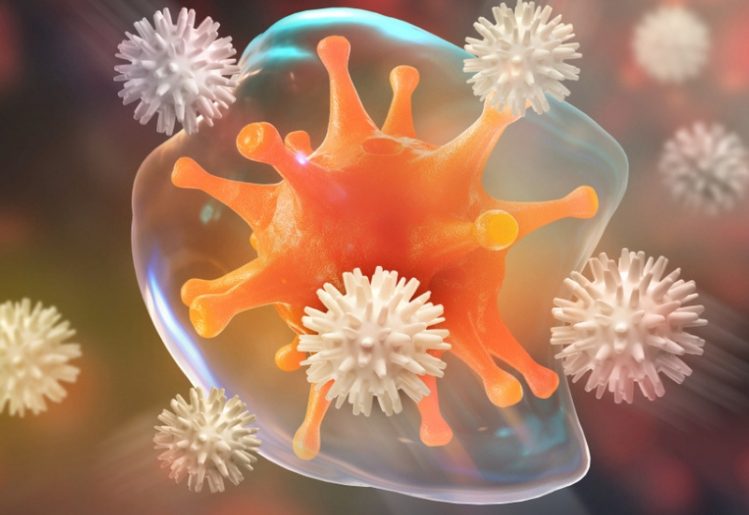 Scientists opine that aside from maintaining a healthy digestive system, probiotics also exert a positive impact upon other bodily systems including the skin, the reproductive tract and oral health. That said, researchers also stress that these substances play a most crucial role in maintaining optimal immune-system health.
Scientists opine that aside from maintaining a healthy digestive system, probiotics also exert a positive impact upon other bodily systems including the skin, the reproductive tract and oral health. That said, researchers also stress that these substances play a most crucial role in maintaining optimal immune-system health.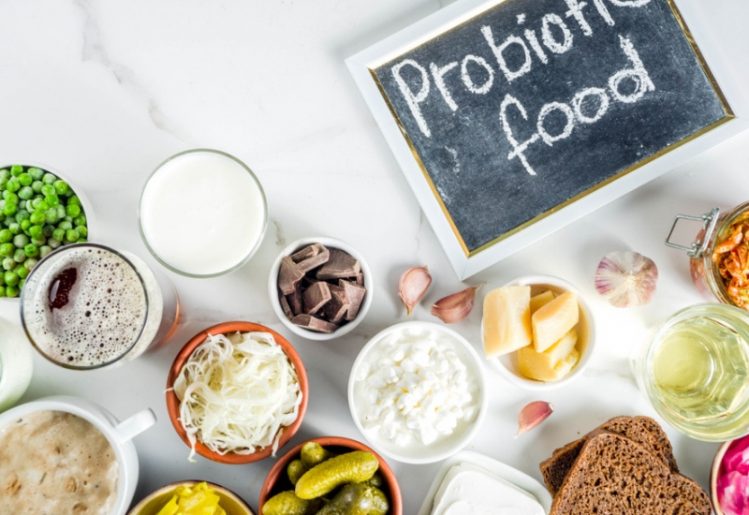 Yogurt is well-known for containing gut-stabilizing flora. However, not all yogurt contains these substances. It is important to check the labels and purchase only products designated as containing probiotics.
Yogurt is well-known for containing gut-stabilizing flora. However, not all yogurt contains these substances. It is important to check the labels and purchase only products designated as containing probiotics. As with most types of cancer, when it comes to colorectal cancer, an early diagnosis leads to better results from treatment. While your doctor can use state-of-the-art screening equipment to confirm a diagnosis, it’s important for the average person to be able recognize the symptoms of colorectal cancer. If the following symptoms occur frequently or persistently, or if you develop several of the symptoms listed here, you should consult a doctor as soon as possible.
As with most types of cancer, when it comes to colorectal cancer, an early diagnosis leads to better results from treatment. While your doctor can use state-of-the-art screening equipment to confirm a diagnosis, it’s important for the average person to be able recognize the symptoms of colorectal cancer. If the following symptoms occur frequently or persistently, or if you develop several of the symptoms listed here, you should consult a doctor as soon as possible.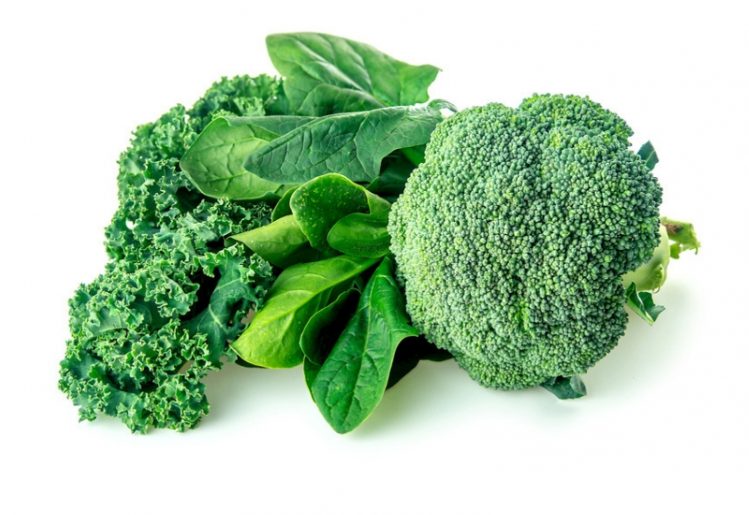 These flavonoids act as anti-inflammatory agents, helping the body fight the inflammation that contributes to the development of cancer, type 2 diabetes and obesity. Flavones are common in green foods, such as celery, green peppers,
These flavonoids act as anti-inflammatory agents, helping the body fight the inflammation that contributes to the development of cancer, type 2 diabetes and obesity. Flavones are common in green foods, such as celery, green peppers, 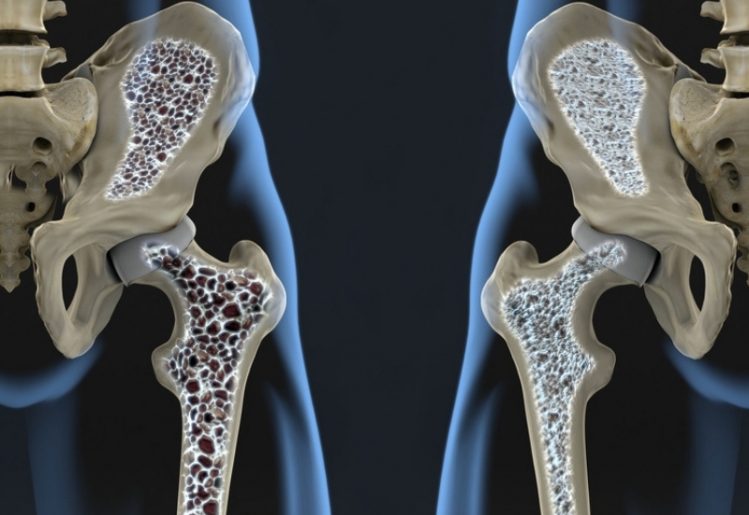 In a healthy person, the body continuously generates new bone and reabsorbs old tissue at a steady rate, so the overall strength of the bones are kept at optimum levels. An individual’s bones are their strongest in their 20s and, as they reach age 30 or 35, their bones begin to weaken. Bone growth slows as we get older and post-menopausal women in particular are at risk of weakened and brittle bones.
In a healthy person, the body continuously generates new bone and reabsorbs old tissue at a steady rate, so the overall strength of the bones are kept at optimum levels. An individual’s bones are their strongest in their 20s and, as they reach age 30 or 35, their bones begin to weaken. Bone growth slows as we get older and post-menopausal women in particular are at risk of weakened and brittle bones. While all types of exercise are beneficial to your health, weight training and resistance exercises will build bone and muscle strength. If you don’t have the ability to join a gym and use free weights or weight machines, you can use your own body to build bone strength. Sit-ups, push-ups and chin-ups are great for building both strength and endurance.
While all types of exercise are beneficial to your health, weight training and resistance exercises will build bone and muscle strength. If you don’t have the ability to join a gym and use free weights or weight machines, you can use your own body to build bone strength. Sit-ups, push-ups and chin-ups are great for building both strength and endurance.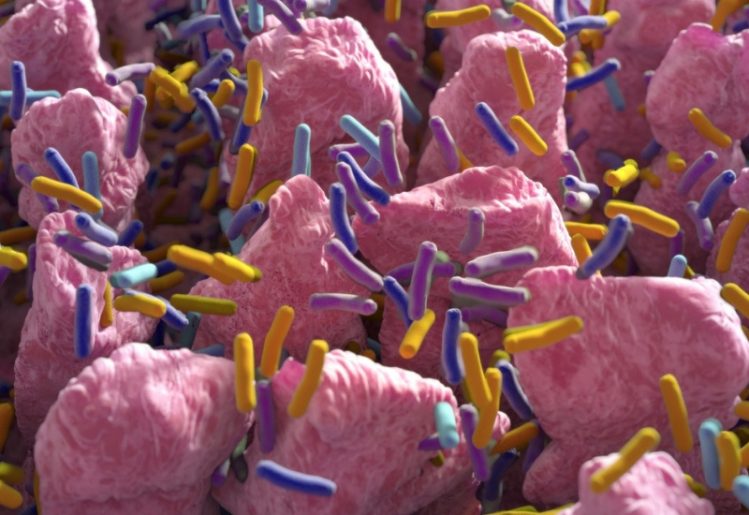 Previous studies have shown that the gut microbiome changes as we age. The recent study involved transferring the gut microbiota from 24-week old mice to mice that were only six weeks old. Within eight weeks, the research team noted that there was more advanced neurogenesis and a boost in intestinal growth in the younger mice. These changes were accompanied by an increased
Previous studies have shown that the gut microbiome changes as we age. The recent study involved transferring the gut microbiota from 24-week old mice to mice that were only six weeks old. Within eight weeks, the research team noted that there was more advanced neurogenesis and a boost in intestinal growth in the younger mice. These changes were accompanied by an increased 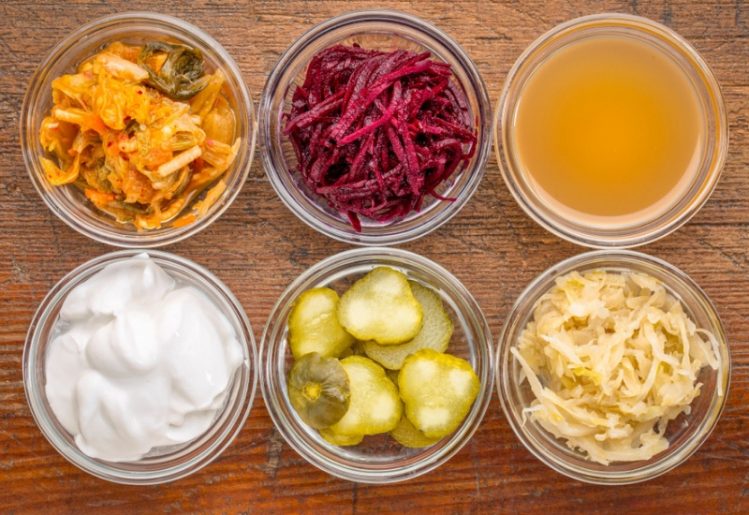 Products, such as yogurt, sauerkraut and kimchi, help convert sugars into organic acids. This process helps reduce the number of bacteria in the body that promote inflammation. Both adults and children can even help alleviate lactose intolerance by adding more plain yogurt to their diets.
Products, such as yogurt, sauerkraut and kimchi, help convert sugars into organic acids. This process helps reduce the number of bacteria in the body that promote inflammation. Both adults and children can even help alleviate lactose intolerance by adding more plain yogurt to their diets.